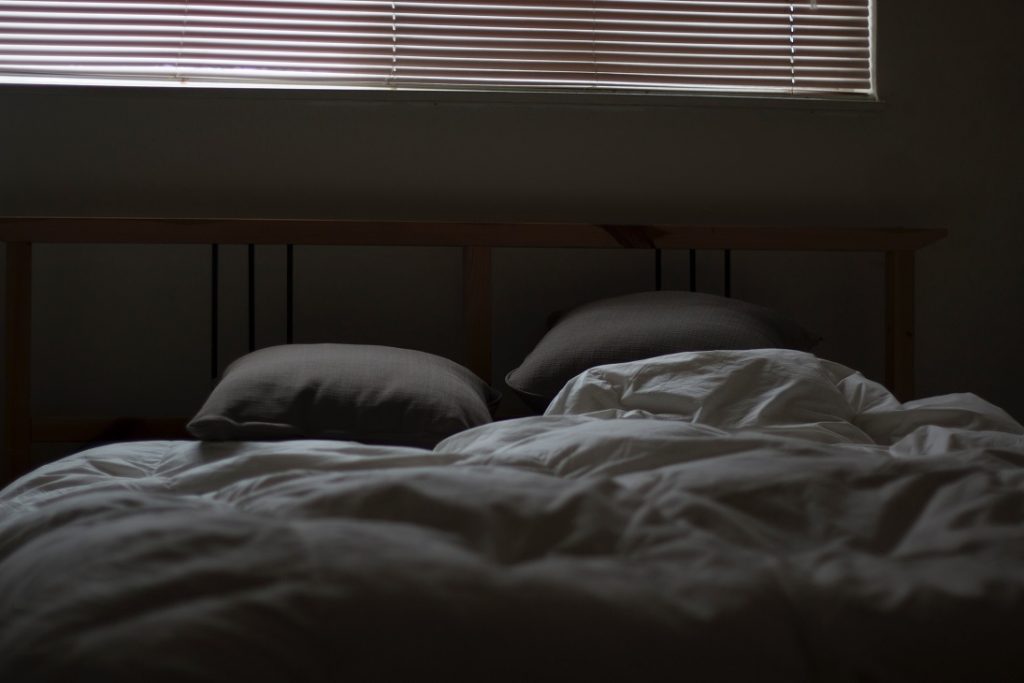Not everyone is blessed with the ability to fall asleep anytime they wish for it. Thousands if not millions of adults are struggling to fall asleep every night. What’s happening to their body that makes it seem so hard for them to get some rest? Well, here are the top 3 reasons why.

Your mind is tired but your body isn’t.
The problem with the modern lifestyle is that we spend too much time sitting at work and at home. This lack of physical activity means by night time your body is still not exhausting enough energy to make you feel the need of resting.
“How so?”
Humans need to burn calories to feel tired. Physical activities burn ATP and produce Adenosine which signals tiredness to the brain. Sure you’ve been crunching numbers on Excel from 9 to 5, but it’s mostly your brain doing the work. The muscles that have been doing the workout are most likely the ones on your fingers. That’s hardly enough workout.
The best solution to this problem is to exercise at least 30 minutes a day. Take a walk around the neighborhood at medium pace after dinner. If the weather is not permitting, go walk on a treadmill or ride an exercise bike. Nothing too rigorous. Just burn enough energy so your body can tell your brain it’s time to take a rest.
You spend too much time on your gadget
Spending too much time with gadgets is another top reasons why people having trouble sleeping. The problematic thing with gadgets is their screens emit blue light. Numerous studies tell us that blue wavelengths are bad for sleep.
You see, blue wavelengths are great for us during the day as they boost our focus, reaction times, and mood. During nighttime, however, blue wavelengths positive traits become undesirable. We don’t want to stay sharp at night. We want to be hazy and sleepy.
If you’ve been having trouble falling asleep, stay off your gadgets at least two hours before bedtime. Turn off the lights in the bedroom too. Fluorescent lights have plenty of blue light mixed in, LED lights are even more so. If you’re not comfortable to sleep in complete darkness, use a dim red light as a night light.
To make the mood more relaxing, try playing some ambient sound. You can try white noises, nature sounds, and some relaxing atmospheres.
Your circadian rhythm is out of whack
The human body has an internal clock call the circadian rhythm. It’s a 24 (and a quarter)-hour internal clock running autonomously in your brain that cycles your state of alertness and sleepiness at regular intervals.
The circadian rhythm is controlled by a part in the hypothalamus (a region of the forebrain below the thalamus),
Your internal clock may malfunction when you don’t have a regular sleep habit, like staying up to study, work, or play games. Jet lag can also disrupt your circadian rhythm, and as a result, you will stay alert when you’re supposed to be sleepy or the opposite.
“Can a malfunctioning circadian rhythm be fixed?”
Of course. To reset your internal clock, you can do the followings:
- Always wake up at the same time every morning
As the boss, you need to instruct your internal clock when is the right time to wake up. It’s like readjusting your wristwatch after Daylight Saving Time is over.
2. Don’t take a nap
No matter how tired you are, stay away from naps. Sleeping during the day can throw off your internal clock even more. Save that sleepiness for the night.
3. Maintain a workable bedtime
If you have to get up at five in the morning and you really crave a good 8-hours of sleep, you better be in the bed at least 8:50 pm. That means you need to get off your gadgets at 07:00 pm. Work around your schedule to achieve this regularity.




